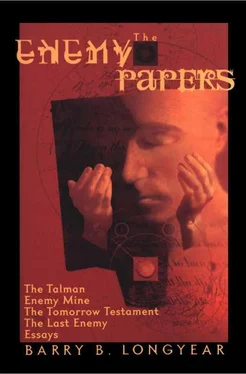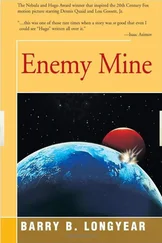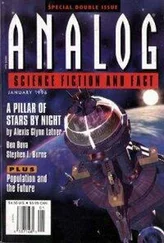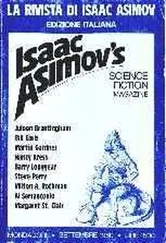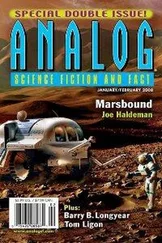"Konnichiwa puff puff!Watakushi wa gasp!Barry Longyear desu. wheeze!"
It was February, 1978, deep in a Maine winter so harsh bears were taking time-outs from hibernation to move into the motels. This was before I discovered either cross-country or downhill skiing, hence I was deep in cabin fever and in one criminal mood.
I was trying to think up something I wanted to write when I turned away from my word processor and looked at the snow falling outside my home office window. There was already a great deal of snow on the ground, and it looked like lots more was on its way. The temperature was in single digits and a wind was picking up.
I can get hypnotically captured by falling snow, fog, and starry nights. I was mentally lost in watching the snow when I started thinking about building a little shelter out in the woods to see if I could survive in the snowstorm. When I was young I used to sneak out of my parents' house late at night and go deep into the woods and build little lean-tos, and even more elaborate shelters. I’d build a warm little fire and spend the night safe from the insanity back at the house.
Still looking at the snow, I wondered what would happen if I were thrown naked out into the snow with only a knife. Would I be able to survive? Shelter, clothing, warmth, food. I figured I wouldn’t be able to last for ten minutes. But what if I started earlier in the season, before the snows, and built a shelter that would protect me? I’d have to have food to last the winter, and wood for a fire, warm coverings, a bed, and there was the whole toilet-paper problem.
I seemed to be exploring the outlines of some sort of survival story, but I began picking at my reasons—what the attraction was to hiding out in the woods. What if I had such a place? No telephones, no computers, no radio, CDs or TV. What would I be doing?
Waiting.
Waiting for what?
The answer brought me back to my earliest memories. What would I be waiting for? I would be waiting for the same thing that I had been waiting for as a child in my clandestine lean-tos in the woods. I’d be waiting for someone who had some answers to come talk with me and fill my head with solutions to the mountain of problems that seemed to follow me wherever I went.
I scribbled out a few notes, tossed them into my story dump, and got on with other things. Later in the year, as Maine sizzled beneath a July sun, the title "Enemy Mine" popped into my head. Thinking about the survival notes I had written the previous January, and with the ghosts of my nights as a child sitting in lean-tos observing, I began writing. In a matter of hours I had before me an alien whose heritage and upbringing are such that it knows who it is, what it is, and what it has to do. This alien, Jeriba Shigan, is also very happy being Jeriba Shigan. It has no internal conflicts. I desperately wanted to know how to do that.
The alien, by example, teaches the human how to love and how to allow himself to be loved. By example, the alien teaches the human how to be a human, something neither the character in the story nor I knew how to do very well. The pages seemed to fly from my typewriter, and my wife Jean was reading them page-by-page as they were finished. At the point where Jeriba Shigan dies, I cried. I had literally lost my best friend in the universe, and now it was time for the human to test all that he had learned by overcoming his grief and keeping his promise to bring the Drac child before the line’s archives. I was on the next page when Jean came into my office, wound up, and punched me in the arm.
"Ow!"
"That’s for killing Jeriba Shigan!" she snarled as she grabbed the next page and stormed out of my office.
I reached the point in the story where Davidge buries Jerry’s body with the rocks he has beaten loose from the ice, when I realized that I was in the middle of the story, not at the end. I had told George Scithers, then editor of Isaac Asimov’s Science-Fiction Magazine, that I had a five-thousand-word short story in the works. I was already at ten or eleven thousand words, and there was no end or ending in sight. I whipped up another ten pages for an ending and sent it off to George, asking what I should do. A curious thing: after I mailed it off, Jean told me that she didn’t think it would be accepted. She said that it was too good.
A few days later. George telephoned me about "Enemy Mine." As I recall it, he said there were some problems with the piece and he was sending it to Isaac Asimov for an opinion. I Immediately dropped everything that I was doing and went into one monumental panic. I whacked out everything that I could, finished the story, and then read over "Enemy Mine" and went over it again and again and again. Eventually, I sent it off with the following cover letter to George Scithers.
24 July 1978
Dear George,
I’ve gone over "Enemy Mine" so many times I’m beginning to get word-happy. My main conclusion is that I’m too close to the story and just don’t know what’s best for it.
My original idea for the piece called for one scene following the birth of Zammis. It would have taken place on Draco, with Davidge standing with Zammis for the recitation in front of the Jeriba archives. Following that, Davidge and Zammis go back to Fyrine IV to found the colony. However, when I got to that point, I was out of control and the story was writing itself. Right now it still seems better this way.
A possible alternative would be to lengthen the piece from the birth of Zammis, which could be done by developing the existing conflicts. One thing this would allow is making a bigger deal out of Zammis’s recitation, with more detail on Drac society, Gothig, etc. Still, right now it seems better the way it is.
None of this casts anything in plastisteel, and I shall join you in waiting upon the good doctor’s suggestions.
I got on with something, I can’t remember what, and then a couple of weeks later George sent me a copy of the letter he had gotten from Isaac Asimov regarding my story.
13 August 1978
Dear George,
As I just told you on the phone, I read ENEMY MINE and was very moved. If I weren’t so old and such a fixture in the s.f. field, I would be so jealous of Longyear. As it is, I love him.
My feeling is he tried to squeeze two stories into one.
I wish he would end ENEMY MINE in the middle of page 51—knitting the wording to make it a more proper ending.
Then I wish he would make the last fourteen pages about three times as long, adding the conflict he mentioned in his covering letter to produce SON MINE as a sequel that can stand on its own.
Isaac
Present the story in two installments, basically, as two separate stories. "Son Mine" was not an option because Dracs have this little biological quirk: they’re hermaphrodites. They don’t have sons or daughters. Nevertheless, I wrote the rest of the piece, and the lost feeling experienced by many Vietnam vets formed the emotional core of the second half as Davidge found himself on Earth and belonging nowhere. The quadrant was at peace, but Davidge was still at war with himself. I sent it off and got on with the next story.
A few days later George telephoned me to tell me that Asimov’s was going to do 'Enemy Mine" as a single novella rather than two novelettes. When he had gotten the second installment, beginning with the burial of Jeriba Shigan, George had given it to one of his readers and asked him to read the beginning and tell him what he thought was going on. The answer was humbling: "Well, the protagonist has just killed this alien and is feeling pretty bad about it." After that he decided to run it as one piece. I made the repairs and "Enemy Mine" appeared in the September 1979 issue of Isaac Asimov’s Science Fiction Magazine.
Читать дальше
